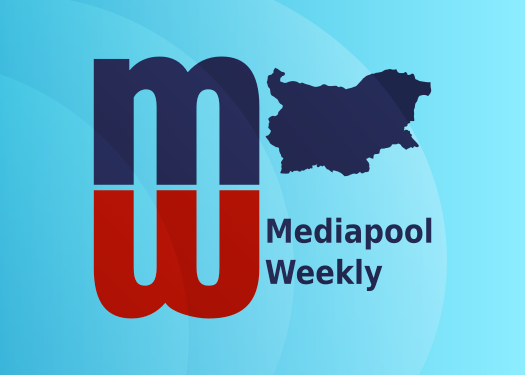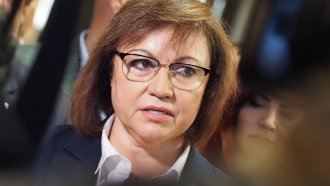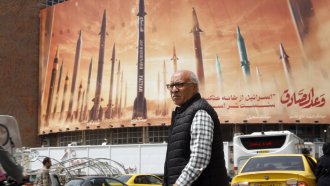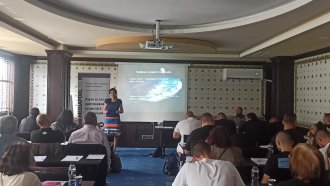EU-Western Balkans Summit in Sofia

EU and Western Balkan Leaders before EU-Western Balkan Summit, Sofia
The historical EU – Western Balkans summit – the second of its kind in 15 years – was held in Sofia. The event was the high point of the Bulgarian Presidency of the Council of the EU. EU leaders assured their Western Balkan counterparts that their eventual succession to the Union while certain, won’t become reality in the near future and not at all without serious and real reform.
During the forum a declaration, which describes the steps that the six Balkan states must take to bring them closer to succession, was signed. While the declaration maps out specific objectives and criteria, it does not mention any timeframe for those to be completed.
The EU hopes that this commitment would suffice in keeping Western Balkan states out of Russia’s influence. At the same time they stressed that actual accession won’t happen before both sides are ready for it. More and more western analysts warn that Russia and other countries openly or otherwise destabilize the region. However, French president Emanuel Macron said that “over the past 15 years Europe has weakened every time we have thought of its enlargement. I don’t think we are doing any favors to candidate countries or to ourselves having a mechanism that has no rules but goes ahead with the enlargement.” Macron underlined that before actual succession not only do the candidate states need to undergo reforms, but the EU as well.
German counselor Angela Merkel said that “today we are not discussing enlargement so much as giving the Western Balkans a European direction.”
In any case it seems that the Western Balkan states are still far from actual accession. Aside from high corruption, low rule of law, and the state of organized crime, another problem is the many unresolved disputes in the region.
This is especially disappointing to Macedonia and Albania who were hoping to begin the official accession procedure next month. Serbia and Montenegro are in the negotiation phase but there is no telling how long it will take for them to conclude.
Still, Donald Tusk, President of the European Council said (and later tweeted in a similar tone) that “The is no plan B for the Western Balkans, they are an integral part of Europe.”
Bulgarian PM Boyko Borissov said that Europe doesn’t have anything to fear from this enlargement as the collective GDP of the six states is 96 million euro and the population – less than that of Romania. Donald Tusk was quick to tone down this enthusiasm:
“Europe is big and strong enough to adopt and accept this project with all its consequences. The GDP and demography of the region are not large compared to other parts of Europe but if we look at the problems facing the individual, they exceed those of Germany and France combined and for that reason we should be cautious with the promises we make.”
Most Successful Bulgarian Mountaineer Boyan Petrov Will Remain Forever Below Shishapangma

Boyan Petrov
Bulgaria’s most successful mountaineer Boyan Petrov, who disappeared May 3 while attempting to conquer one of Himalaya’s eight-thousanders, will remain forever somewhere below Shishapangma summit. An almost unprecedented search and rescue mission that lasted for 11 days came to a close with no success.
Boyan Petrov separated from his group on April 29 to attempt a solo summit.
The most likely scenario is that Petrov has fallen in a crack along the way to the summit, another Bulgarian alpinist, Atanas Skatov, who just summited another eight-thousander in the Himalayas, Cho Oyo, asserted.
Boyan Petrov was attempting to climb all eight-thousendars without oxygen. Before attempting Shishapangma and disappearing, he had summited 10 out of the 14.
Conference “Media Freedom and Pluralism” Held in Sofia
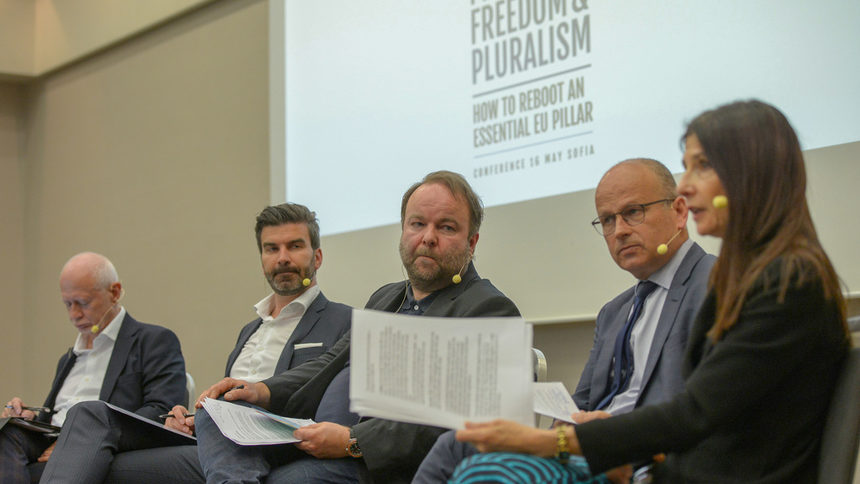
Media Freedom and Pluralism Conference
Journalists, publishers and international NGOs united against the declining freedom of the media in Central and Eastern Europe. There are some serious issues in Western Europe as well but media freedom in Central and Eastern Europe is currently facing an existential risk, participants in the conference declared. The conference was dedicated to the state of media freedom in Poland, Hungary, Czech Republic, Slovakia, and Bulgaria.
The conference was organized by Reporters Without Borders (RWB), the European Newspaper Publishers’ Association, the South East Europe Media Organization, the Bulgarian Publishers’ Union and others.
During the opening speech, head of the Bulgarian Publishers’ Union Teodor Zahov said that “a couple of days ago the reporter Hristo Gehsov from Cherven Bryag was attacked. There is an institutional pressure against reporters and publishers [In Bulgaria], chats at coffee shops are had that contain certain hints. At the same time controlled media outlets are being established to broadcast manipulated content.”
The focus during the portion on Bulgaria was again centered around DPS MP Delyan Peevski. Participants cited Bulgaria’s drop by 75 places in the Press Freedom Index over the past 12 years (from 36 in 2006 to 111 in 2018), and explained that what has led to this is the power concentration and media network controled by Peevski. The document also aims attention at the increased number of threats and attacks of journalists in Bulgaria. The declaration clearly proclaims concentration of media ownership as “the main instrument of exerting pressure”, and adds that “[this] model also includes strong influence over the government, prosecution and judiciary power.”
“All of the above forms a huge political and business conglomerate led by an acting politician, magistrate and media and business owner Delyan peevski”, the declaration reads. The document also points out that since 2009, except for a few brief interruptions, Bulgaria has been governed by GERB and its leader and three-times Prime Minister Boyko Borissov, who enjoys a non-critical and often positive coverage by media outlets close to Peevski.
“Not only does PM Borissov refuse to acknowledge that there is a problem with media freedom in the country, but he plays a key role in expanding Mr. Peevski’s access to public resources, while simultaneously providing him with new institutional tools for repression, including legislative decisions, designed to target independent media. ”
The conference concluded with a declaration, entitled “Media Freedom in Europe: Code Red”. The text describes many instances of political pressure and control over the media, and emphasized that capturing the media is one of the crucial steps towards establishing a benevolent dictatorship or state capture. The declaration grimly states that the “erosion of the European democratic model, a trend visible in recent years, is ongoing and becoming more worrying … The traditionally safe environment for journalists in Europe has begun to deteriorate.”
The document urges policymakers and legislators on the European level to take measures to safeguard quality journalism. One recommendation is for a European fund for the protection of media freedom to be established. The participants stressed that the fight for media freedom is a fight for the future of the EU and democracy in the member states. Another – EU funds for the next program period are to be tied not only to the rule of law but also to the state media freedom in the member state. A third recommendation proposes for EU funding to go directly to media outlets instead of going through state governments first. The document firmly stands behind news publishers to gain similar to author’s rights, which will make it easier for publishers who invest in original reporting to seek their rights, especially with regard to disputes with social media platforms like Facebook and Google.
Meanwhile the head of the European and Balkans office of RWB, Pauline Ades-Mevelurged urged the Bulgarian government to provide physical protection for journalists, who have received threats, in a publication on RWB’s site about the recently attacked journalist Hristo Geshov.
“This attack demonstrates the way in which investigative reporters are treated by groups, who want to silence them through terror”.
The publication points out that recently attacks and threats against reporters in Bulgaria have escalated, especially since Bulgaria took over the presidency of the Council of the EU.
Government Proposes for Moratorium on NPP Belene to be Dropped

Energy Minister Temenuzhka Petkova
Energy minister Temenuzhka Petkova announced Friday morning in an interview for the Bulgarian National Television (BNT) that the government has submitted a proposal to Parliament for the project for NPP Belene construction to be resumed. PM Boyko Borissov announced the government’s intent last Saturday.
The only realistic scenario according to the government is for a strategic investor to be found and for the state to contribute with the existing assets - the site, licenses, equipment – and to own at least 34% of the future company.
According to her, it will be very hard to sell the equipment to a third party: the deal would be for a very low price and will be dependent on the good will of the producer of the equipment – Russian Rosatom.
Meanwhile the China National Nuclear Corporation (CNNC) announced last week that they are interested in developing NPP Balene. They first expressed interest in the project in late 2016 when Bulgaria had to pay 620 million euro to Atomstroyexport for developed nuclear equipment for the plant, whose development was frozen in February 2012.
Several days after PM Borissov’s announced government’s intention to renew the NPP Belene project, the parties of the newly formed non-parliamentary coalition Democratic Bulgaria (DB) declared they will be organizing a protest against the notion, which will be held Tuesday, May 21. DB strongly condemned the restart of the project in any way or form.
In DB’s words the intent of resuming the project is but a “turn towards the Kremlin and a restart of the thefts.”
“Resuming this dangerous, economically unsound, technologically obsolete project behind which lurks the double play and behind the scenes pact between ruling party and opposition”, an official position of DB reads.
DB has formulated four questions for PM Borissov regarding NPP Belene. Why is lifting the moratorium necessary, especially as he himself deemed the project seismologically risky and as the Bulgarian Academy of Sciences in a special report failed to show evidence that additional power is needed in Bulgaria or the region; why did Borissov waited 2 years before ceasing the project even thou his party had majority in the Parliament, which led to additional payments to the already-spent billions of taxpayers’ money; why did GERB, in its 10-years of governing, has failed to hold anyone responsible for spending said billions; and lastly, why has the government not appealed the arbiter court’s ruling for Bulgaria to pay Atomstroyexport 620 million, despite DB members’ parties urging at the time and many experts’ advice to do so.
Another non-parliamentary party Movement Bulgaria for the Citizens (DBG) also criticized the idea with similar arguments. They are positive that the project could and will become a money machine for certain groups merely by unfreezing it.
Economist Krassen Stanchev, founder of the Institute for Market Economics (IME) and professor at Sofia University said in an interview for Focus National Radio that “with financing yet another restart of NPP Belene the history of 1987-88 will repeat itself: Bulgarian government will take money from the West to give to the East”.
The Bulgarian Socialist Party (BSP) is traditionally for the project and is cautiously supporting GERB in this, however, with some concern whether they would follow through and isn’t bringing up the restart of NPP Belene merely a PR stunt.
As for GERB, Valentin Nikolov, former Deputy Energy Minister and former NPP Kozloduy CEO, expressed great support for the government’s stance in an interview for Nova TV. In his words NPP Belene was ceaced in 2012 because the project then wasn’t financially refined.
“The project was badly developed. There was no final contract, no strategic investor and it was not clear how much the state had to put in. Many things were not clear at all”, he continued with a tone implying that those are past circumstances, which do not apply for today, although there is no real justification for drawing any contrast between then and now.
Bulgaria to Propose Amendments to EU’s Mobility Package

Bulgarian PM Boyko Borissov gave his EU partners proposals for amendments to the EU Mobility Package during the EU-Western Balkans summit Thursday. The proposal is written up in corporation with Transport Commissioner Violeta Bulc.
Bulgarian truckers protested the mobility package on Thursday and threatened to blockade the city on Friday in an attempt to convince EU leaders not to adopt it. The Third Mobility Package introduces strict new rules on break intervals and payments. The former will put incredible strain on carriers, Bulgarian firms and workers in the field insist. The rules require for drivers to return home on definite intervals for a given period. However, as Bulgaria is geographically very far from most carrier’s destinations, this would prove extremely difficult and expensive to fulfill.
Another important point is that the package prohibits drivers from spending their weekly breaks in the truck’s cabins. This would entail problems with insurance: most hotels don’t have guarding parking lots, while one of the terms of insurance companies is for trucks not to be left unattended.
Nearly 80% of owners and managers of companies in the field describe the new rules as a risk to the business and expressed concern that they will become bankrupt in 2 to 3 years, if the rules come into force. Over 83% of them characterize the requirement for drivers to return home either as very difficult or impossible to fulfill.
Trial Against New Ski Zones in Bansko has Begun

Gondola lifts at Bansko
The Supreme Administrative Court (VAS) commenced the trial against the expansion of the ski zones in Bansko. The lawsuit was filed by eco-activists against the government’s decision from December 2017 to change the management plan of National Park Pirin. The amendments give way for new ski infrastructure construction. According to the plaintiff any changes to the management plan must be preceded by an ecological impact assessment. Such an assessment was not made. The government argued that such an assessment is necessary only when the concessionaire – Yulen JSC - declares an investment intent to build.
The court has sustained part of the claims of the eco-coalition “For the Nature”, including decisions of the World Heritage Committee, which clearly state that any development in the buffer zones around the world heritage territories (Bansko and Dobrinishte, which are part of the National Park Pirin) must be preceded by an ecological assessment.
Sofia City Council Votes to Take 67 million leva Loan for New Incineration Plant

Sofia Municipality rushes to begin implementation of the project for energy production for heating and power from incineration. The plant is to be built on a site owned by Sofia Heating and will cost 157.54 million euro. Sofia Municipality intends to take a loan of 67 million euro from the European Investment bank and the rest is to come from European funds through the Environmental Operative Program.
The City Council approved the decision for Sofia municipality to take the loan after a three-hour debate, which focused more on whether the city needs an incineration plant at all.
Members from the parties that make up the newly-formed non-governmental opposition coalition Democratic Bulgaria (DB) voted against the loan and were vocal in their opposition to constructing the plant altogether. DB has already called for a referendum to decide whether the project should move forward.
The so-called Political Group 5 voted also against. In their view the citizens have not been informed well on the project, which – in their words – will lead to more air pollution. Their position on the matter is that the project should be discontinued while a new assessment of the technology is made.
The Bulgarian Socialist Party (BSP) remained skeptical about the loan as it will add to the financial burden of Sofia Heating, which is financially unstable and with mounting debts. They also assert that the site to be used shouldn’t be the one chosen, as it is close to the city center. Instead, the plant should be built next to the waste plant in the town of Yana near Sofia.
The construction of such a plant has been on the table for years. In 2012 the EC approved the project as part of an overall system for utilizing waste in Sofia. The idea is for the plant to provide Heating Sofia with energy, which – according to Sofia Municipality – will reduce its costs and will allow for heating prices to remain at current levels. The direct savings will come from using 10% less gas, which costs about 12.5 million euro per year.
The plant is to incinerate 180’000 tons of waste, which is to produce power for 25’000-30’000 households and heating for 30’000-40’000 households.
Parliament Approves Parliamentary Committee Report for CEZ Deal, BSP to Submit Claim for Deal to be Annulled
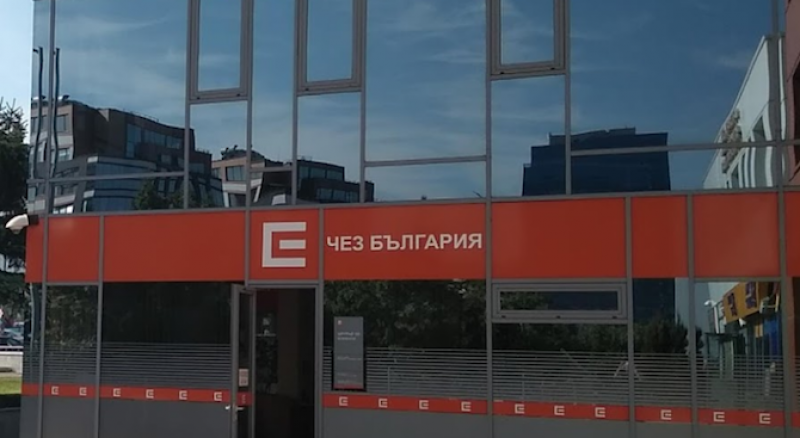
CEZ office building, Sofia
After the Parliamentary Committee, appointed to assess the deal to sell power distribution company CEZ to Inercom submitted their report, БСП announced it will be submitting a request to Parliament for the deal to be declared void. The request would be for the Commission for Water and Energy Regulation (KEVR) to do that as it has the right to intervene in large energy and water deals, and when those reflect on national security.
За честна и независима журналистика
Ще се радваме, ако ни подкрепите, за да може и занапред да разчитате на независима, професионална и честна информационно - аналитична медия.
 0 коментара
0 коментара
Екипът на Mediapool Ви уведомява, че администраторите на форума ще премахват всички мнения, съдържащи нецензурни квалификации, обиди на расова, етническа или верска основа.
Редакцията не носи отговорност за мненията, качени в Mediapool.bg от потребителите.
Коментирането под статии изисква потребителят да спазва правилата за участие във форумите на Mediapool.bg
Прочетете нашите правила за участие във форумите.
За да коментирате, трябва да влезете в профила си. Ако нямате профил, можете да се регистрирате.
